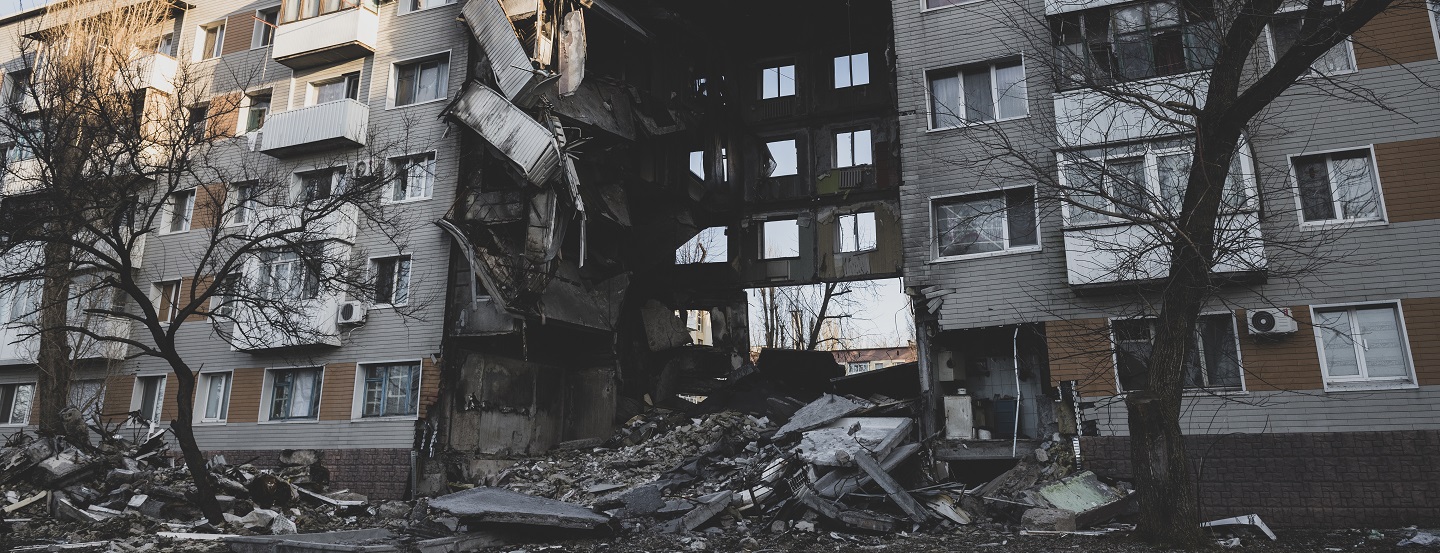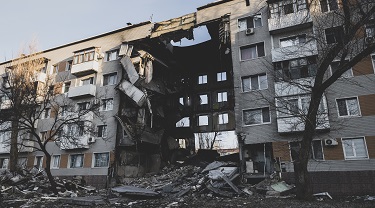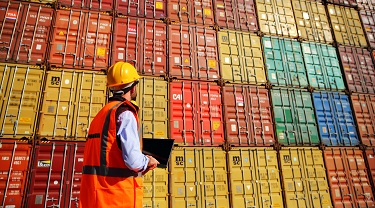
‘Reconstruction of the century’: How Canadian companies can play a part in Ukraine’s recovery
Author details
Olga Vovk
Senior Regional Manager, Europe
In this article:
Rebuilding Ukraine following the destruction from Russia’s invasion is going to be the “reconstruction of the century” and cost more than €400 billion, the World Bank announced at a recent conference in London.
Co-hosted by the United Kingdom (U.K.) and Ukraine, the Ukraine Recovery Conference (URC 2023) brought together high-level politicians, business leaders, export credit agencies and investors from 60 countries to discuss how the global community can help Ukraine recover from its extensive damage and pave the path for its economic long-term future.
With every shelling, the costs are mounting and some estimates suggest its economy will need more than $1 trillion in investments to rebuild. While many governments, including Canada, have committed their support to these efforts, there’s no denying that the private sector will have to step up.
Public-private partnerships
The International Financial Corporation (IFC) estimates that more than $140 billion could come from the private sector over the next 10 years and emphasized the importance of establishing public-private partnerships (PPPs) in Ukraine to achieve that goal.
It’s a sentiment that was echoed by Ukraine’s Prime Minister Denys Shmyhal in December 2022.
“With the IFC, we are working to create conditions to boost private investments in our economy, especially through PPPs. Together, we hope to launch high-quality projects for Ukraine’s recovery. We’re grateful to our partners for this support,” said Shmyhal in an IFC press release about the need for increased private sector investment.
Ukraine desperately needs investment to build out manufacturing capacity across industries to satisfy the growing demand for immediate reconstruction of critical infrastructure and to support the overall recovery of the country in the longer term.
To enable investment scaleup, reducing risks would need to happen and multilaterals, including European Bank for Reconstruction and Development (EBRD), British International Investment (BII), Multilateral Investment Guarantee Agency (MIGA), and the U.S. International Development Finance Corporation (DFC), have been leading global efforts on war insurance, something Canada actively supports.
“To keep trade lines open in support of Ukraine’s cross-border trade, DFC, BII, and MIGA intend to risk-share IFC’s trade exposure, which will increase the capacity of the GTFP (Global Trade Finance Program) in Ukraine from $200 million to almost $300 million. With this support, IFC and its partners will be in a position to provide access to financing for as much as $1 billion of imports and exports over the next three years,” reads an IFC statement from June 2023.
Needs by sector
Leaders at the June conference made it clear, though, that money wasn’t the only priority. Expertise, skills, knowledge, and technological support are equally as important.
Here are some specific needs by sector:
- Agri-food:
- Demining of lands. It’s estimated that 30% of Ukraine’s territory has been mined.
- Supply machinery to replace equipment destroyed, as well as new equipment to help boost efficiency, namely in food processing; and
- New grain storage facilities.
- Energy:
- Greener and cleaner technologies, including renewables, bioenergy and hydrogen;
- Nuclear energy; and
- Integration into the European Union (EU) networks to allow for exporting.
- Infrastructure:
- New water and wastewater systems;
- Railroad construction;
- Ports and airports;
- Housing development; and
- Health-care infrastructure, including hospitals and rehabilitation centres, equipment and resources for soldiers and citizens.
Modernized free trade agreements
Canadian companies have long benefited from the Canada Ukraine Free Trade Agreement (CUFTA) that entered into force in August 2017, eliminating tariffs across many export groups and bringing improved market access to key sectors such as agri-food, infrastructure, energy, cleantech, metals and mining, and information and communication technologies.
CUFTA was modernized in April 2023 to include chapters on investment, services, temporary entry for business persons, financial services, digital trade, rules of origin cumulation with common free trade agreement (FTA) partners, trade and gender and, for the first time, a chapter on trade and Indigenous Peoples.
For companies interested in participating in Ukraine’s recovery, it’s important to understand where and when to enter the conversation. Building partnerships and alliances, both with local firms and international consortia, is a good place to start.
Those partnerships will be important as they provide the vital local knowledge and understanding of doing business in Ukraine—day in and day out. Having a trusted person on your team who speaks the language, while not a prerequisite, helps immensely.
Stay engaged
Export Development Canada (EDC) continues to closely monitor the situation on the ground in Ukraine, engage with Canadian exporters and qualified investors interested in the market and provide support through its suite of products.
EDC also remains in contact with government partners to explore new ways to support the flow of trade between Canada and Ukraine and provide additional assistance to Canadian businesses looking to do business in the market.
Interested Canadian companies can also tap into special events dedicated to the reconstruction of Ukraine. The second international exhibition and conference ReBuild Ukraine will take place in Warsaw, Poland from November 14-15.
For more information, visit EDC’s Export Help Hub for all relevant updates or connect with our dedicated team at EDCUkraine@edc.ca.
Continue series

Part 1 of 2 in series















